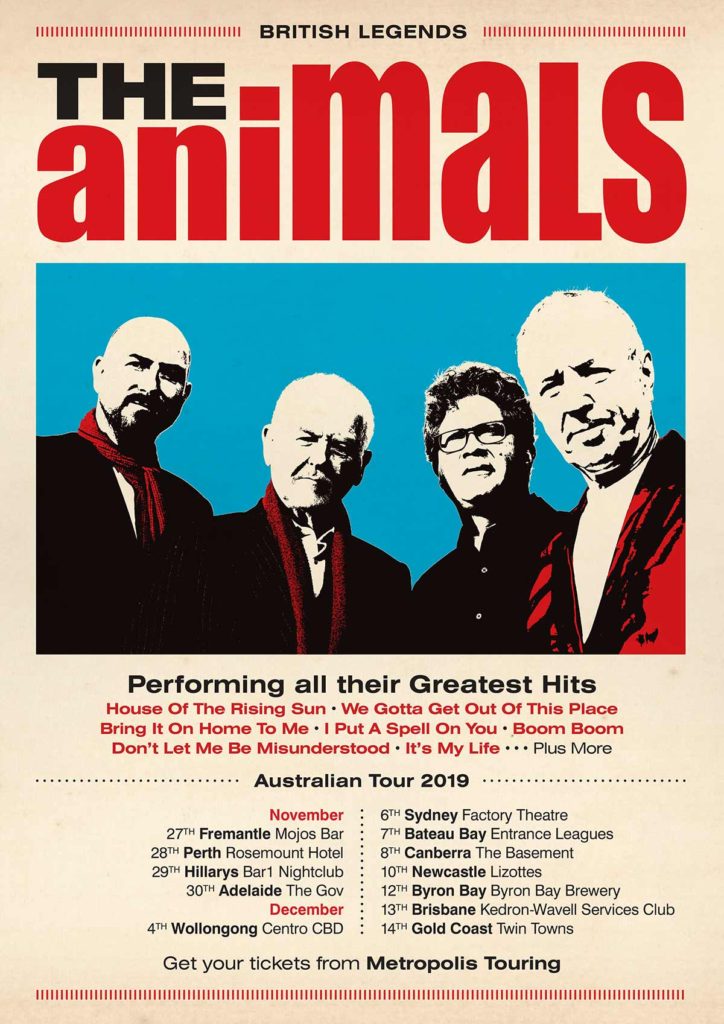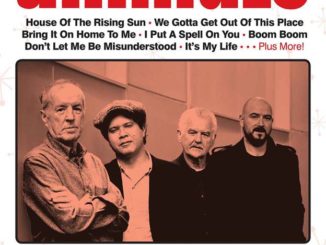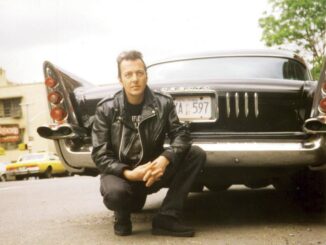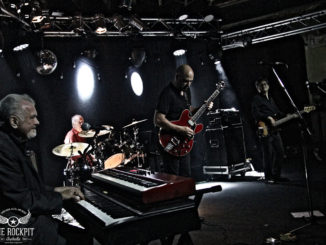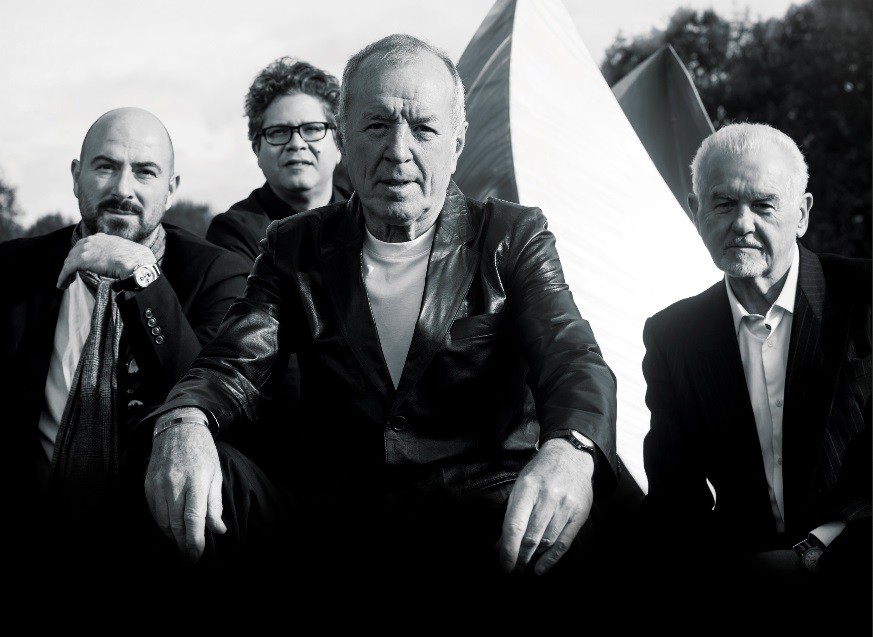
is kept alive with original members John Steel and Mick Gallagher along with Danny Handley and Scott Whitely delivering an unforgettable live experience. And it’s all on it’s way down-under this week. This Greatest Hits Tour will include all their Classics – The House of The Rising Sun, We’ve Gotta Get Out Of This Place, Don’t Let Me Be Misunderstood, It’s My Life, Don’t Bring Me Down, Boom Boom and more…
Mark: Hi Mick, great to talk to you how’s things on the ever of the trip down-under?
Mick: Pretty good, it’s pretty cold here though so I’m looking forward to getting down to Aus and the heat! (Laughs)
Mark: It is pretty warm here at the moment. And your first stop is our neck of the woods in Perth where you play three gigs in and around the City. That’s a rare treat for us over here why three dates?
Mick: That means we don’t have far to go between gigs (laughs)
Mark: (laughs) Good thinking! There’s a pretty large UK ex-pat population in Perth who will appreciate that and hopefully pack the rooms out for you.
Mick: I think there’s a pretty large English and European content in Australia all together and that’s one of the reasons I love going there, it’s like home from home, but I’ve always loved The Australia, Australians have great taste in music.
Mark: I must admit that over the years I’ve never managed to catch The Animals, three times I’ve had tickets and my plans have been foiled by a flat tyre, work and a funeral so its great I’ll finally get to see you this tour.
Mick: That’s great to hear.
Mark: And I was so pleased that I managed to tee up a chat with you because, and we’ll get to some of the other things you’ve done later, but it’s like getting the chance to speak to someone who has stepped through the pages of Rock and Roll history, but things have hanged haven’t they?
Mick: Well I do feel very fortunate to have been born at the time I was and to have the opportunities that I’ve had. You know those opportunities unfortunately aren’t around for young people these days. I don’t know what’s happening in Australia but there are a lot of little clubs here where bands used to play and cultivate their art, and they’re all gone now. Young people now have to pay places to play now, so the whole atmosphere around Rock and Roll now isn’t what it used to be. And I don’t think we’ll ever get back to that. There was just a time in the 60’s and 70’s when it thrived, and I was fortunate to be born into those times.
Mark: It was a wonderful time for music and I personally think that even though we don’t always appreciate the music of our parents the 60’s and the 70’s were surely the most innovative and exciting times for music?
Mick: I think so, it’s historical and as you say you a lot of kids don’t usually latch onto the music of their parents but my kids did – The Beatles and The Stones and The Animals, and all that great 60’s stuff. That’s where they get their influences from. But sadly a lot of kids spurned the guitars for all of this keyboard stuff and it just doesn’t have the resonance that the music of the 60’s had.
Mark: Not at all, and for myself as a big lover of the Hammond organ I always found that and those guitars really the core of The Animals’ sound. The Animals were also a band that seemed comfortable in two worlds – that of The Blues and also the Pop hits they had?
Mick: It was the enthusiasm of young white kids playing old black man music (laughs) thats the way it came across it was a wonderful choice of genre for the kids of the 60’s to pick up on. It as infectious. Sadly I never use the Hammond these days – it would take three guys to carry it around!
Mark: (laughs)
Mick: We’ve got all this digital stuff now that represents that sound very well so while I’m touring that’s what I use. I don’t use a Hammond, it’s just too cumbersome. In fact back in the day Alan left the bad to get a Hammond organ, he used to play a Vox Continental! That was the sound that we had, they’re an awful looking thing now! (laughs)
Mark: It’s interesting looking back over your career and that brief first spell with the Animals back in 1965, I never heard how that came about? Being a Newcastle local did you all know each other?
Mick: Well maybe ‘knew of each other’, they were sort of a generation ahead of me socially. I sort of got the gig by chance, because when Alan (Price) left Dave Rowberry the keyboard player they went to college with – they asked him but he was busy with The Mike Cotton Sound (a band who made a living backing American blues and pop acts touring England). He was under contract for the next six months for tours and he just couldn’t drop everything and go out there so that’s why I got the job I was sort of the default. I’d played a gig with my band at the Club A Go Go the night before and I think in desperation they’d rung up and said “Dave’s not available who can we get?” and as I’d played the night before the manager must have remembered and said “Use him!” so they came looking for me. I thought I’d done something wrong when I knew the manager of the Club A Go Go was looking for me, I thought “God I must have got pissed and done something!” (laughs)
Mark: (laughs)
Mick: So I sort of made myself scarce and they found me hiding out in a cafe!
Mark: (laughs)
Mick: And when they found me they said “No, no they want you to go and play with The Animals.” And that was my introduction to it all, they gave me a haircut, smartened me up, they had to get me a passport as I didn’t have one. And within a day they had me down in London, I got me papers and then I was over to Sweden for the first gig in Stockholm, I got there 20 minutes before they went on stage!
Mark: Wow!
Mick: I think if I’d have been any older I would have been really nervous but because I was so young I was just so blase and just sailed into it and ended up enjoying every minute of it. I must admit I knew a bit about The Animals music, coming from Newcastle where they were the big band and I’d heard all of the hit records so playing was no problem.
Mark: It must have been incredible to have just been thrust into the limelight like that?
Mick: It certainly was it made me determined to make my career from there I’d been in a semi-pro band not really doing much and then comes this offer and I’m thrust into the world of a successful Rock and Roll band, and I thought “Wow” this is what I want to do, so I determined to do that for the rest of my life, and I did it. (laughs)
Mark: You certainly did, my Dad is over from the UK at the minute and already has his tickets to see you. I was telling him that we we’re going to chat and he said “You do know what band’s Mick is in don’t you?” and I said “No,” I knew that you’d played with The Clash and were on those two great albums (‘London Calling’ and ‘Sandinista’) but I never knew you were a ‘Blockhead’ if you’ll pardon the expression!
Mick: (laughs) I am yes, I’m still a Blockhead now, and even though we lost Ian (Dury) in 2000 we’ve been going for the last 20 years. As we’re a seven piece band it is quite expensive to tour but we do play in England every now and again and it goes down really well. We did come to Australia once in 1980 did a great tour but just the once that was it.
Mark: And we might as well add that one of your other claims to fame is that you played with the Clash and were on their two greatest albums ‘Sandinista’ and before that ‘London Calling’ – how did that come about?
Mick: Well that was when I was with The Blockheads and I was asked if I wanted to go ‘on holiday’ we had just had a number one hit and Ian decided we should go on holiday. So at that point The Clash asked me if I would come away with them for a year and I played on Sandinista and I also toured with them.
Mark: That’s amazing, you were in one of the most influential bands of the 60’s; you played with one of the most critically acclaimed bands of the late 70’s and 80’s in The Clash and Ian Dury and The Blockheads were legends!
Mick: (laughs) Yeah, it’s a god history! I don’t know how it all happened I think it comes down to the fact that I’m a quite sociable person and I think that’s why I got accepted in all those different areas and got to play with all those bands. I think they just enjoyed my company and it wasn’t just my keyboard playing? And I’ve made it a family affair all the way through.
Mark: And in another way too, didn’t your kids sing on a couple of Clash tunes?
Mick: (laughs) they did, they sang on “Career Opportunities.” and “Guns of Brixton” that was fun. Actually it was a really fun time with The Clash and The Blockheads was great too. It was then I got into the habit of being in different bands at the same time,its always been part of my career. Difficult to juggle at times but fun!
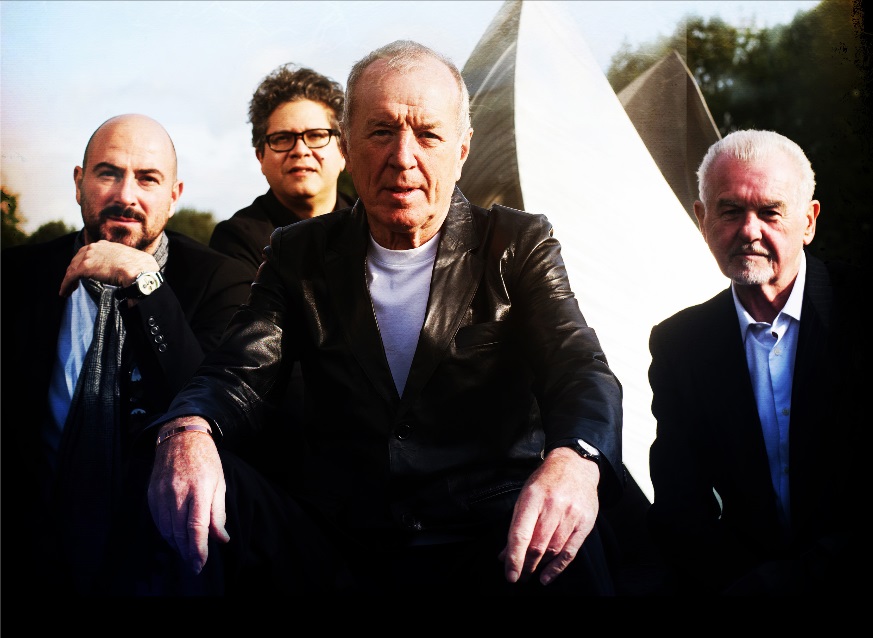
Mark: I guess that leads us all the way back to the beginning, how did it all start. What got you playing in the first place?
Mick: (laughs) Well when I was about nine or ten my mum sent me for piano lessons and she got me playing the organ in the Church for weddings and funerals and she’dsit and pump the organ because my legs wouldn’t reach the pedals.
Mark: (laughs)
Mick: (laughs) so she used to work the bellows. I remember playing Handel’s ‘Largo’ and ‘The Wedding March’ I was born a Roman Catholic so the Church was a big thing, but I rebelled against it and I used to play truant from the music lessons and my mum found out and just said forget about it. Then I remember when I was about 14 or 15, at that time you’re looking for attention from the opposite sex and I noticed that this guy sat down at the piano and he was getting all the attention plying a few tunes on the piano. And I thought “I could do that” so I went away and bought a couple of pieces of music , I think it was ‘On the Rebound’ by Floyd Kramer and a little parody of The Nutcracker Suite. And so I’d go off with these to the youth club, sit down at the piano, do my bit and sure enough I got attention! (laughs)
Mark: (laughs)
Mick: (laughing) and I think that was what started it all.
Mark: That’s a great story and I bet a lot of Rock and Roll careers have started in a similar way!
Mick: It’s all just a craving for attention really!
Mark: (laughs) And the music of The Animals music has endured over the years, the band is in the Rock and Roll Hall of fame, not a mean feat for a non-American band. And the influence is there for everyone see from garage bands to Bruce Springsteen, who has gone on record as saying that he probably wouldn’t be who he is today without the music of The Animals.
Mick: Well yes, a lot of artists were stimulated by what The Animals did, and went on to inject that into their own careers. It was a very influential time the 60’s and the music got everywhere. I mean ‘We Gotta Get Out Of This Place’ was made famous by the Viet Kong! (laughs) They used to play that back at the American troops over the lines to tell them to go home- ‘You Gotta Get Out Of This Place’. And that’s why that became such a popular record with the American troops because they heard it every day from the Viet Kong.That became one of the most popular songs of the band along with ‘The House of The Rising Sun’ which is a classic and still is. It is a traditional song but The Animals did the first electric version of it which became the definitive version. A lot of life is about being fortunate, right time, right place and in that case right song.
Mark: So what do you enjoy most about getting upon stage and continuing the legacy?
Mick: Every night is fantastic playing those hits and because of the genre of the music we can spread things out a bit and do things differently every night, but it’s a wonderful catalogue of songs and a privilege to play them.
Mark: I was actually schooled the other day by an 18 year old who was telling me all about these really deep cuts and obscure songs and I was really impressed by his knowledge and I asked him about his collection,thinking maybe his dad might have had a stack of vinyl and he just said he streamed it.
Mick: Well thats the beauty of an internet platform like that these days. Something that we didn’t have back in the day which is why the record companies had such a hold over the artists because they were the only ones who could get it distributed to the shops and played on radio and stuff like that. With the internet they lost all that power and that has gone in the artists favour.
Mark: If only the artists got a bit more money out of it though, that’s what we need to see, more to the artists not the platforms.
Mick: (laughs) the downside I guess is jobs, it’s OK to pronounce music should be free, and everyone shout “yeah” why can’t the musician sell? But no one thought what comes after.
Mark: Like so many industries disrupted by technology, no plan or thought for the consequences that affect people. Thank you so much for the chat Mick, its been great, I’m very conscious of you time and just hoped we had time for two more traditional questions we ask everyone?
Mick: No problem.
Mark: If you could have been a ‘fly on the wall’ for the creation of any great album just to see how the magic happened in the studio, what album would you like to have seen being made?
Mick: I would have been really enthusiastic to have been around for ‘Sgt. Pepper’ – imagine being around when that was recorded, a ‘fly on the wall’ for ‘Sgt. Pepper’ that would have been great. It’s marvelous what they did with the technology, way ahead of the time. That would have been really fascinating to watch. Such creativity. It’s a classic isn’t it?
Mark: And as promised we end with the easy question, what is the meaning of life?
Mick: (laughs) what is the meaning of life! Really? Who knows? We don’t know do we? It would be nice to know, or would it be nice to know? I personally don’t think it would be nice to know the meaning of life, I think that’s the whole point of life. When we search for the meaning in that search we find ourselves.
Mark: That I think is one of my favourite answers in ten yeas of asking, thank you.
Mick: It must be a sixties thing! (laughs)
Mark: (laughs) Thank you so much for taking the time Mick, I really appreciate you rearranging things for me.
Mick: It’s been great Mark, I hope to see you there, make yourself known and come and say hello.
Mark: I will do, take care Mick and have a safe flight down under.
Mick: Thank you Mark. Bye.
